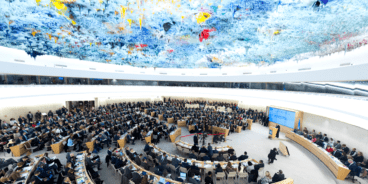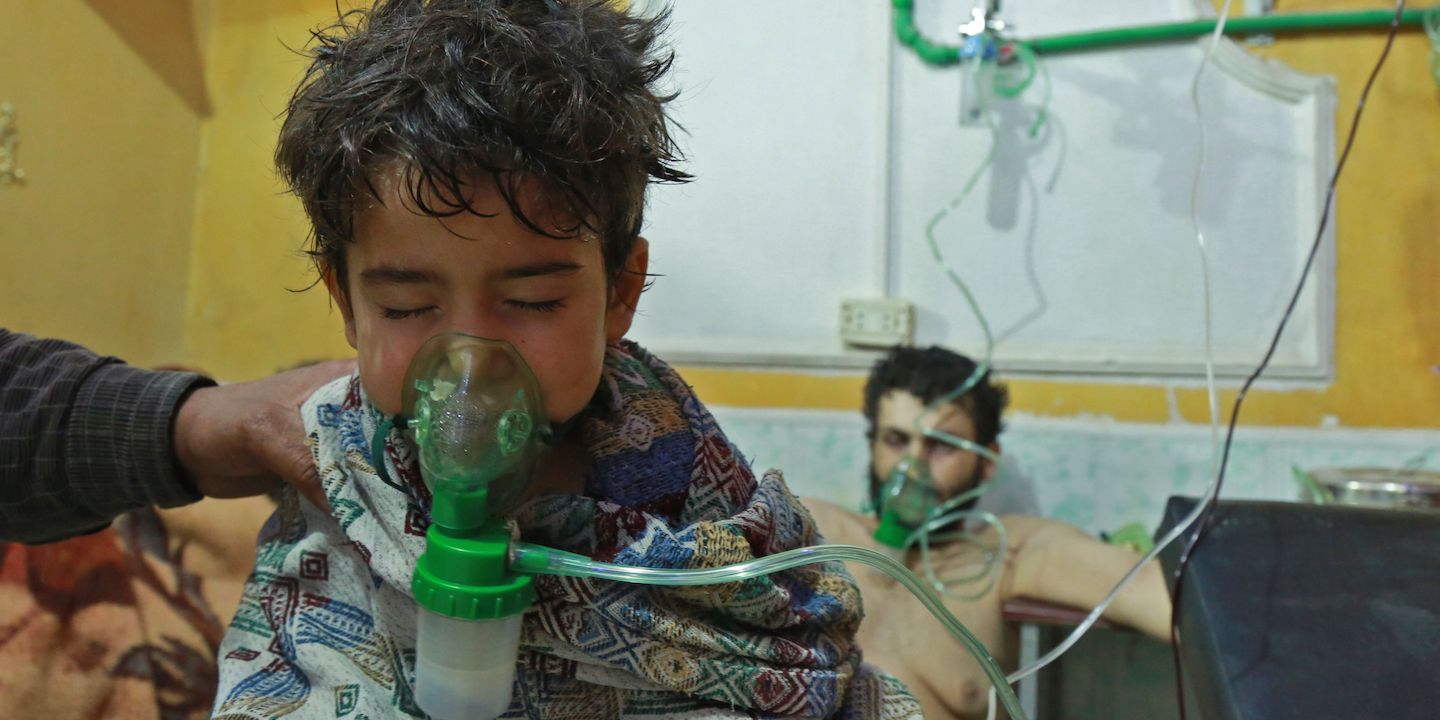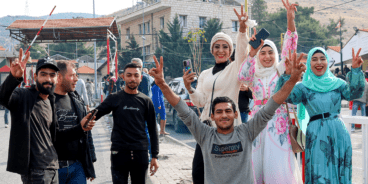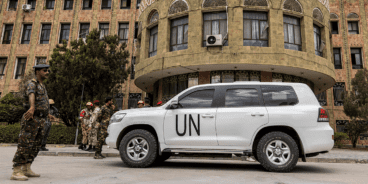

Atrocity Alert No. 199: Yemen, Syria and the Sahel
Atrocity Alert is a weekly publication by the Global Centre for the Responsibility to Protect highlighting situations where populations are at risk of, or are enduring, mass atrocity crimes.
Tentative hope regarding fragile ceasefire in Yemen
Last Wednesday, 8 April, the Saudi Arabia and United Arab Emirates (UAE)-led international military coalition announced a two-week unilateral ceasefire in Yemen. The Houthis, who released their own eight-page peace plan the same day, have alleged the ceasefire was nothing more than “a political and media maneuver.” Although fighting has decreased, the ceasefire remains tenuous as some ground attacks and airstrikes continue.
The ceasefire declaration in Yemen was a result of a 23 March global initiative by UN Secretary-General António Guterres calling for all warring parties to cease hostilities and focus efforts on combatting the COVID-19 pandemic.
In a 10 April Press Statement the UN Security Council welcomed the announcement by the Saudi/UAE-led coalition and called upon all other parties to similarly commit to a ceasefire. The UN Special Envoy for Yemen, Martin Griffiths, also welcomed the announcement, stating that, “The parties must now utilize this opportunity and cease immediately all hostilities with the utmost urgency, and make progress towards comprehensive and sustainable peace.”
The coalition’s declaration comes after more than five years of war characterized by rampant war crimes and the death of more than 12,000 Yemeni civilians. Hospitals and medical facilities have consistently been targeted by all parties to the conflict, with these war crimes severely affecting the country’s capacity to confront COVID-19. Flight bans and closed border crossings, imposed to stop the spread of COVID-19, have also disrupted life-saving humanitarian operations, exacerbating what is already the world’s largest humanitarian crisis.
Earlier this week Yemen officially recorded its first COVID-19 case. In order to prevent a COVID-19 outbreak from further devastating the country, all parties to the conflict must immediately halt the restriction of humanitarian operations and end blockades that prevent essential commercial imports entering Yemen. A comprehensive ceasefire should be established and rigorously upheld by all parties to the conflict.
New evidence of chemical weapons attacks by Syrian Air Force
On 8 April the Organisation for the Prohibition of Chemical Weapons (OPCW) Investigation and Identification Team (IIT) reported that the Syrian Arab Air Force used chemical weapons in three separate incidents during a single week in March 2017 in Ltamenah, Syria. The Coordinator of the IIT, Santiago Oñate-Laborde, stated that, “Attacks of such a strategic nature would have only taken place on the basis of orders from the higher authorities of the Syrian Arab Republic military command, and that even if authority can be delegated, responsibility cannot.”
The findings were contained in the first report of the IIT, mandated by the OPCW to identify perpetrators responsible for the use of chemical weapons in Syria. The IIT concluded that there are reasonable grounds to believe that the 50th Brigade of the 22nd Air Division of the Syrian Arab Air Force dropped bombs containing sarin on 24 and 30 March 2017, and that a helicopter dropped a cylinder containing chlorine on Ltamenah hospital. Over 100 people were affected during these three attacks.
Sarin is a nerve agent that paralyses the lungs, causing suffocation amongst those who are exposed to it, even in small quantities. Chlorine gas attacks the eyes and skin, causing acute pain, and causes the lungs to fill with fluid, drowning the victim. Both toxic substances lead to terrifying and agonizing deaths. Using them is a war crime.
The OPCW created a Fact-Finding Mission (FFM) in 2014 and confirmed with a “high degree of confidence” that chlorine and mustard gas were being used against civilians in Syria. Although the FFM was not authorized to identify perpetrators, its findings supported the work of the UN Security Council-mandated OPCW-Joint Investigative Mechanism (OPCW-JIM). According to the OPCW-JIM, the Syrian government used chemical weapons on numerous occasions. It also found evidence of several chemical weapons attacks perpetrated by the armed extremist group, the Islamic State of Iraq and the Levant. The OPCW-JIM’s mandate ended after Russia vetoed three UN Security Council resolutions during October and November 2017, blocking its renewal. The IIT was then established following a June 2018 decision by the Conference of States Parties to the Chemical Weapons Convention.
Chemical weapons are inherently immoral, indiscriminate and illegal. Their prohibition is one of the oldest norms of the international community, dating back to 1899 and reinforced by the Geneva Protocol of 1925 and the 1997 Chemical Weapons Convention, of which Syria has been a member since 2013. The international community must hold all those who use chemical weapons and commit war crimes accountable under international law, regardless of their position or affiliation.
Growing insecurity in Burkina Faso forces Malian refugees to flee
On 27 March the International Organization for Migration (IOM) issued a statement expressing alarm regarding a COVID-19 outbreak in Burkina Faso, as violence against civilians also increases. Abibatou Wane, IOM Burkina Faso Chief of Mission, said that, “We are concerned that increased displacement creates a fertile ground for more tensions among the population and leads to a spill-over of the conflict in new areas.”
Ongoing attacks by armed groups in Burkina Faso has resulted in the fastest growing displacement crisis in Africa with more than 780,000 internally displaced persons (IDPs) and an estimated 2.2 million people requiring humanitarian assistance. Rising insecurity has affected all 13 regions of Burkina Faso, where civilian conflict fatalities increased 649 percent between 2018 and 2019. The security forces have also frequently perpetrated human rights violations and abuses. For example, according to Human Rights Watch, the Forces of Defense and Security extrajudicially executed at least fourteen men between 7 and 9 April in Djibo, Soum Province.
In recent weeks, armed groups in Burkina Faso have also attacked and threatened refugee and IDP camps. In response, approximately 25,000 Malian refugees recently decided that returning home “was the lesser of two evils.” However, ongoing violence in Mali prevents many populations from safely returning to their places of origin. According to the UN Refugee Agency (UNHCR) those refugees who have been able to return to the Gao, Mopti, and Timbuktu regions, are “panicked returnees, many with horror stories.”
In the already fragile security and humanitarian environment of the Sahel, vulnerable communities now also face growing fear caused by COVID-19. There are extremely poor hygiene conditions and limited access to health care in many displacement sites, and it has been reported that there are only 11 ventilators in Burkina Faso for a population of more than 19 million people. Growing violence over the past year has also forced the closure of more than 135 health centers.
International donors should support emergency efforts by UNHCR, IOM and other humanitarian agencies to provide assistance to those affected by COVID-19 and displaced by conflict across the Sahel, including essential psychosocial support. Despite the COVID-19 outbreak, the governments of Burkina Faso and Mali must uphold their primary responsibility to protect those fleeing from armed groups and ongoing atrocities.
Related Content


